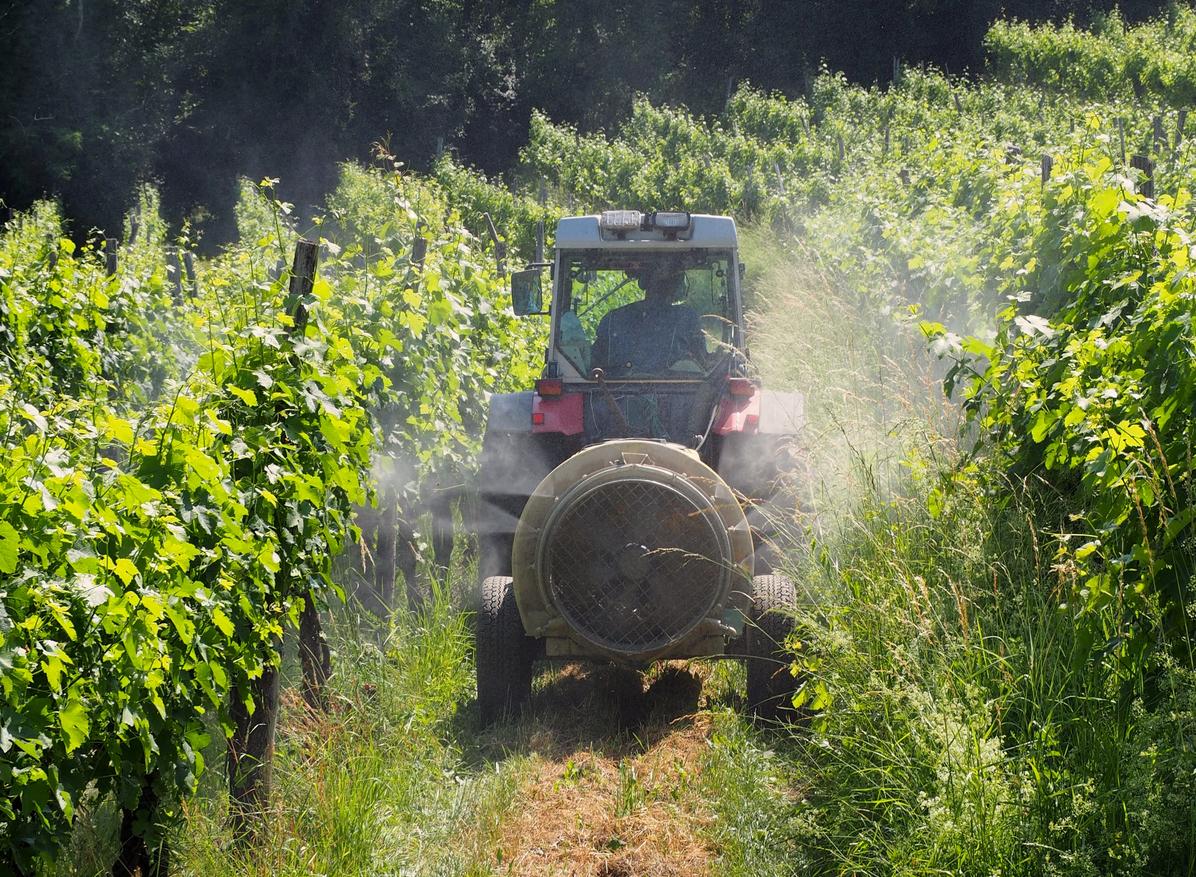A new study shows that for some cancers, the effect of agricultural pesticide use is comparable to that of smoking.

- A new study shows that “pesticides have a significant effect on increasing the risk” of lung, colorectal, pancreatic, bladder, leukemia, and non-Hodgkin’s lymphoma cancers.
- “In our study, we found that for some cancers, the effect of agricultural pesticide use is comparable in magnitude to the effect of smoking,” says the lead author.
- The researchers point out that “it is the combination of all these pesticides and not just one that counts.” This is what is called the cocktail effect.
Non-Hodgkin’s lymphoma (NHL), multiple myeloma, prostate cancer, Parkinson’s disease, cognitive disorders, chronic obstructive pulmonary disease and chronic bronchitis… There is a strong presumption of a link between exposure to pesticides and several pathologies, according to a report of a group of experts brought together by Inserm published in 2021. In an attempt to contextualize the scale of the phenomenon in a more concrete way, American scientists decided to take into account data concerning smoking in order to compare the figures. To do this, they studied the effects of 69 pesticides on the incidence of cancer in the United States between 2015 and 2019. The results were published in the journal Frontiers in Cancer Control and Society.
Increased use of pesticides leads to higher incidence of cancer
For all cancer types assessed here, i.e. colorectal cancer, leukemia, lung cancer, non-Hodgkin’s lymphoma, pancreatic cancer and bladder cancer, “pesticides have a significant effect on increasing riskThis effect applies to farmers, of course, but also to residents living in areas where agricultural production is significant.
For all of these cancers, the scientists found that the Great Plains region in the center of the country had the lowest added risk. They noted that this was a region where agricultural activity was the least intense in terms of total production. The difference between this reference region and the region with the highest added risk was 154,541 additional cases of cancer per year.
“In our study, we found that for some cancers, the effect of agricultural pesticide use is comparable in magnitude to the effect of smoking.”, says the study’s lead authorDr. Isain Zapata, associate professor at Rocky Vista University, College of Osteopathic Medicine in Colorado. For some cancers like leukemia, non-Hodgkin’s lymphoma and bladder cancer, the incidence was even higher with pesticides than with cigarettes.The largest difference in effect was observed for non-Hodgkin’s lymphoma, with 154.1% more cases caused by pesticides compared with smoking”, we can also read in the report.
The cocktail effect under the microscope
If 69 pesticides were evaluated in this study, it is in particular because the researchers believe that it is not a single pesticide that is responsible for cancer, but the cocktail effect of the many pesticides present in the environment.We present a list of the main pesticides contributing to specific cancers, but we strongly emphasize that it is the combination of all these pesticides and not just one that matters.”, underlines the specialist who also specifies that: “In the real world, people are unlikely to be exposed to a single pesticide, but rather to a cocktail of pesticides in their area.”
“Through our comprehensive analysis and unique approach, our study highlights the importance of a holistic assessment of pesticide risk to communities, which can be used to influence future pesticide policies.”, the authors conclude.
France is the third European country authorizing the largest number of pesticides, according to a study by Future Generations. And according to the most recent data from FAOFrench agriculture used an average of 3.45 kilograms of pesticides per hectare of cultivated land in 2022, or around 67,874 tonnes over the year.



















